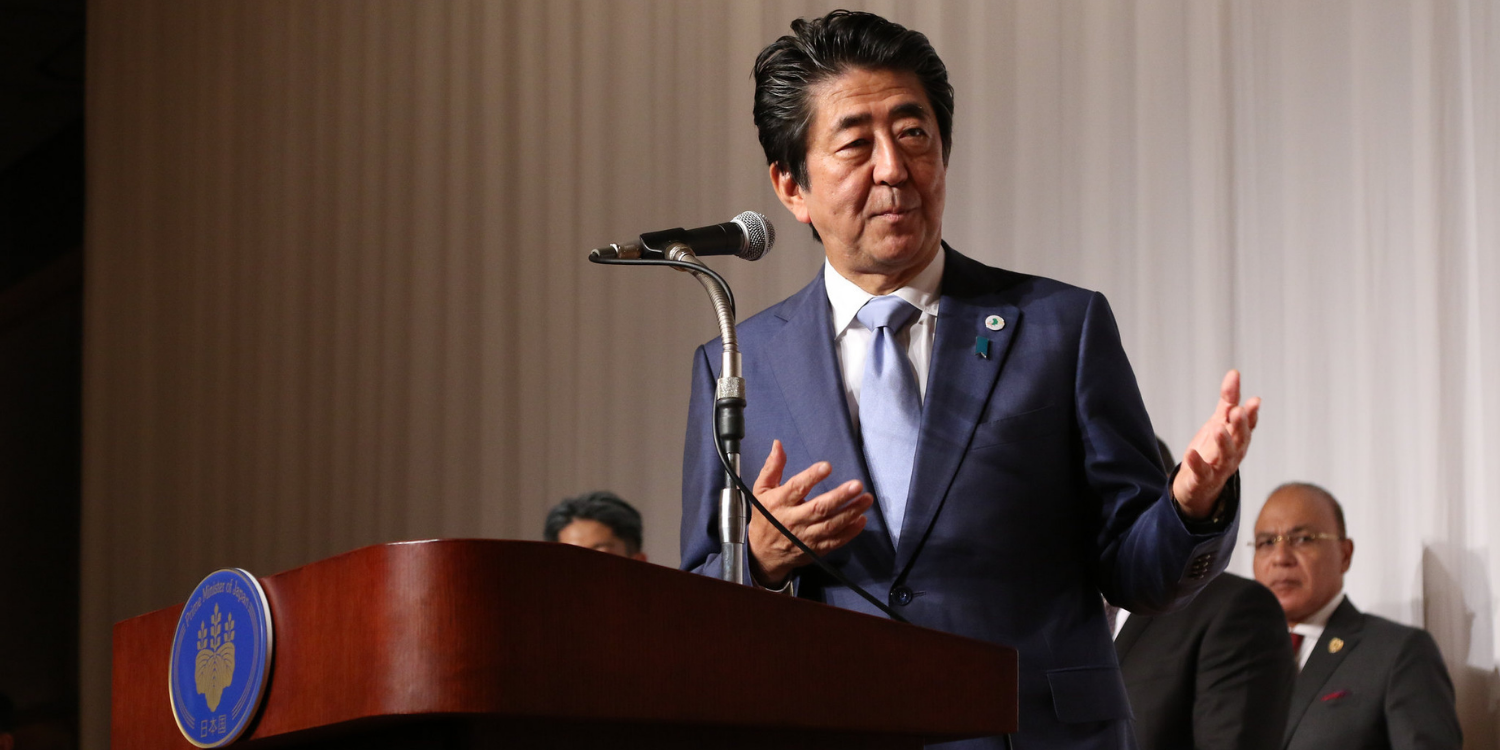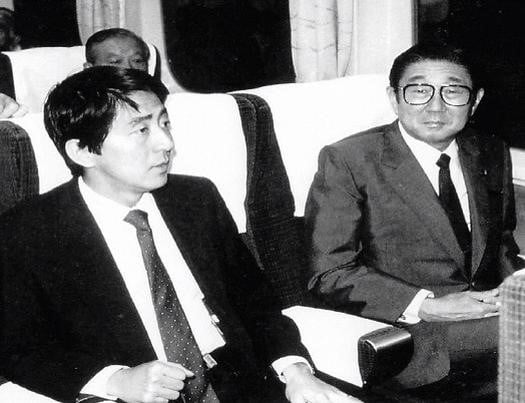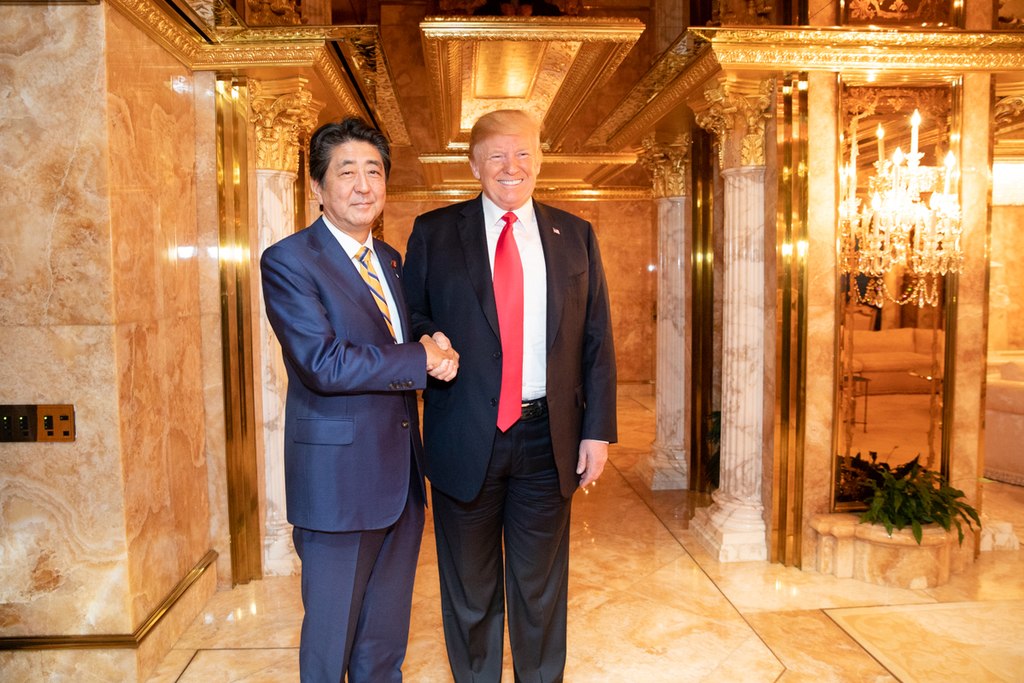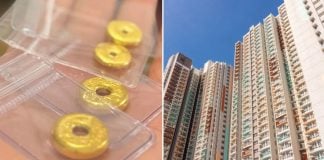6 Shinzo Abe Facts Including His Undisrupted 8-Year Run As Japan’s Prime Minister
In his lifetime, Mr Shinzo Abe, whose name is ever uttered in his homeland Japan, commanded much attention and respect.
Not only does he hold the title of Japan’s longest-serving prime minister (PM), but he apparently came from a long line of respectable leaders too.
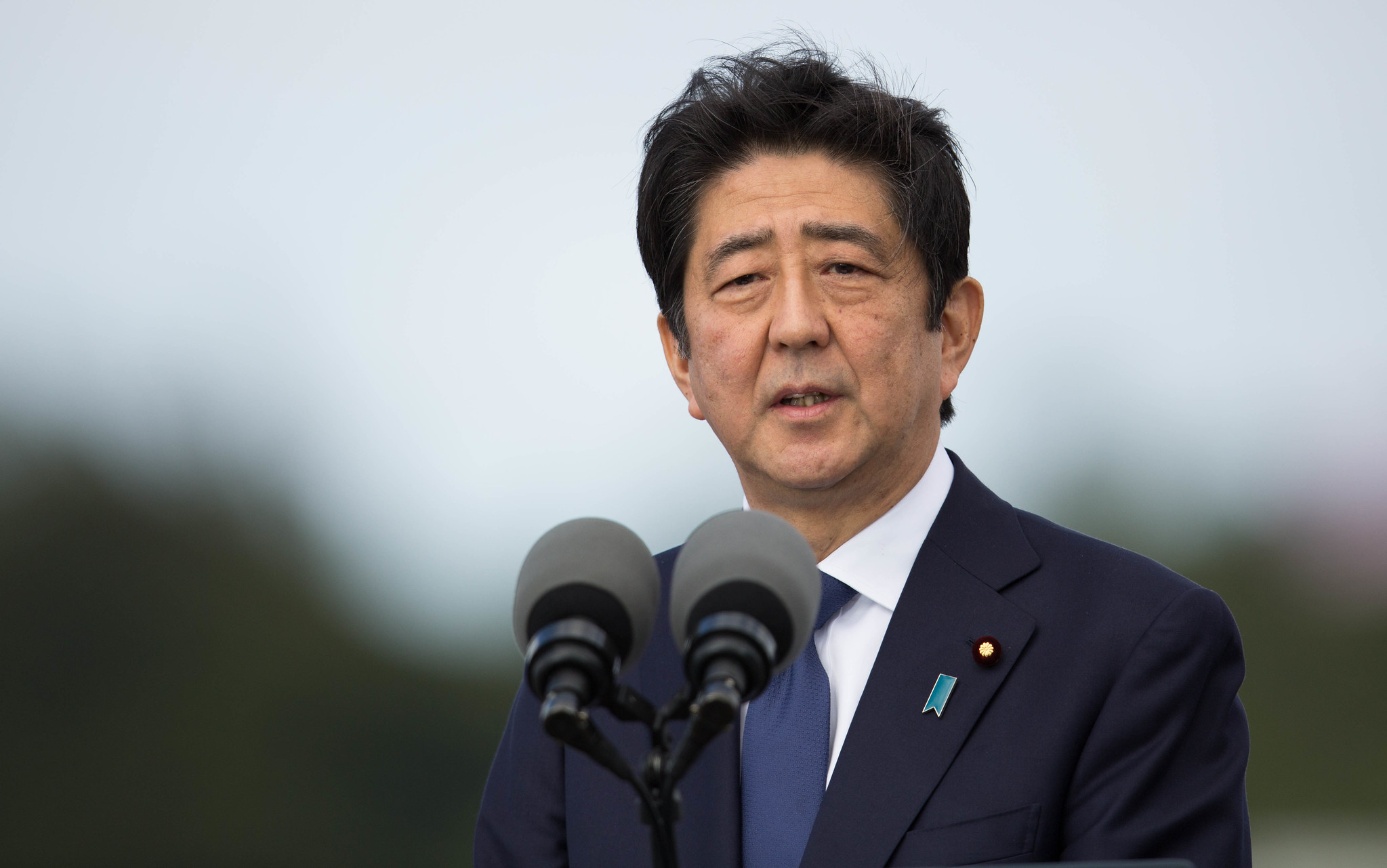
Source: Anthony Quintano on Flickr
On 8 Jul, Mr Abe was shot by an attacker while he was giving a speech in Nara city.
The attacker had allegedly shot him twice, leaving the former PM bleeding after collapsing to the floor.
Later on in the day, reports from Tokyo emerged and confirmed the worst, that the former leader has passed away.
As the world mourns, we look back at the illustrious life of the contentious figure.
1. His grandfather & father were both prime ministers after WW2
Mr Abe was just 52 when he first became PM in 2006, the youngest person to occupy the job in the postwar era.
Nicknamed “the Prince”, Mr Abe was the son of former Foreign Affairs Minister Shintaro Abe and grandson of former PM Nobusuke Kishi.
His great uncle, Eisaku Satō, a Nobel Peace Prize recipient, also held the position of PM from 1964 to 1972.
Noting the family’s heavy political involvement, one can possibly say that it was Mr Abe’s destiny to follow in their footsteps.
2. Shinzo Abe served as Japan’s PM for 9 years
Although many would remember his uninterrupted tenure, Mr Abe actually became PM first for a year, from 2006 to 2007.
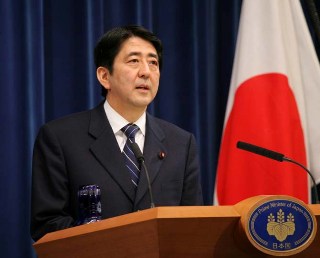
Source: Prime Minister of Japan
In his first year as PM, he had to endure a series of scandals which affected his administration.
Come the 2007 elections, his Liberal Democratic Party (LDP) suffered a heavy loss and he resigned after developing ulcerative colitis, a bowel disease.
However, in 2012, he returned as PM after he overcame the disease with the help of medication.
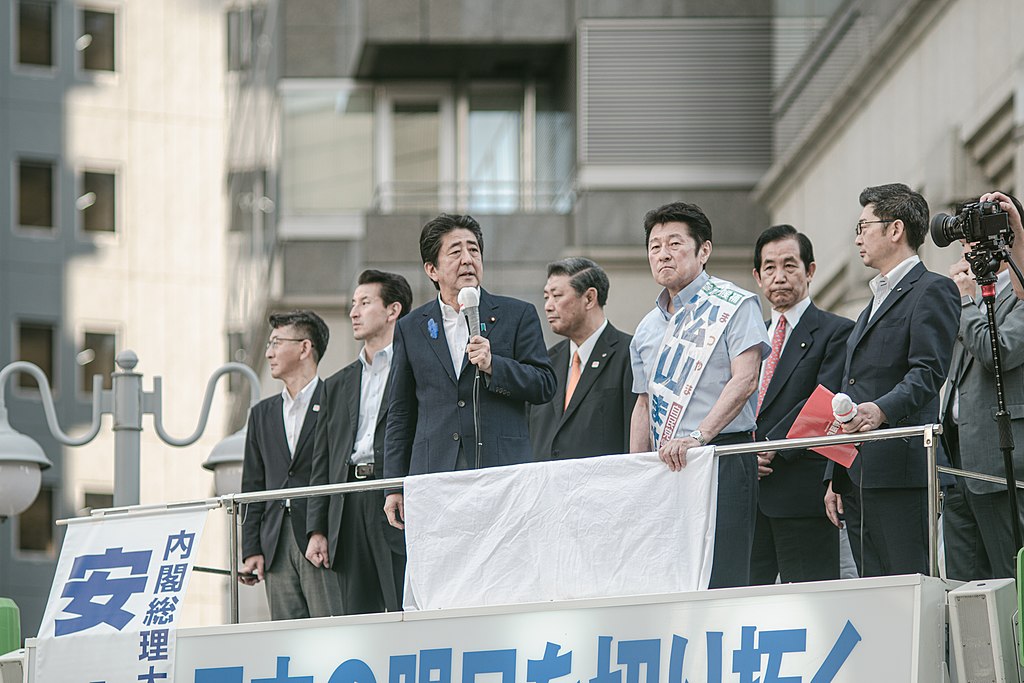
Source: Wikimedia Commons
Although his popularity fluctuated in the years leading up to his second resignation in 2020, he remained largely unchallenged due to his influence in the LDP.
That influence later worked in his favour when the LDP amended their rules to allow him to serve as their party leader for a third term.
3. First foreign leader to meet Donald Trump when he was president
In 2016, Mr Abe was the first foreign leader to meet with US President Donald Trump at Trump Tower.
This first meeting was not marred by any political clouds, as Mr Abe described the encounter as a “very candid talk” in a “very warm atmosphere.”
He was also the first foreign leader to visit the United States for a multi-day meeting with Trump.
For comparison, former UK Prime Minister Theresa May met with Trump for just one day in Jan 2017.
4. Led his party to 3 landslide election victories in 2012, 2014 & 2017
Of course, Mr Abe’s long run as PM was only possible thanks to multiple election victories which he led his party to.
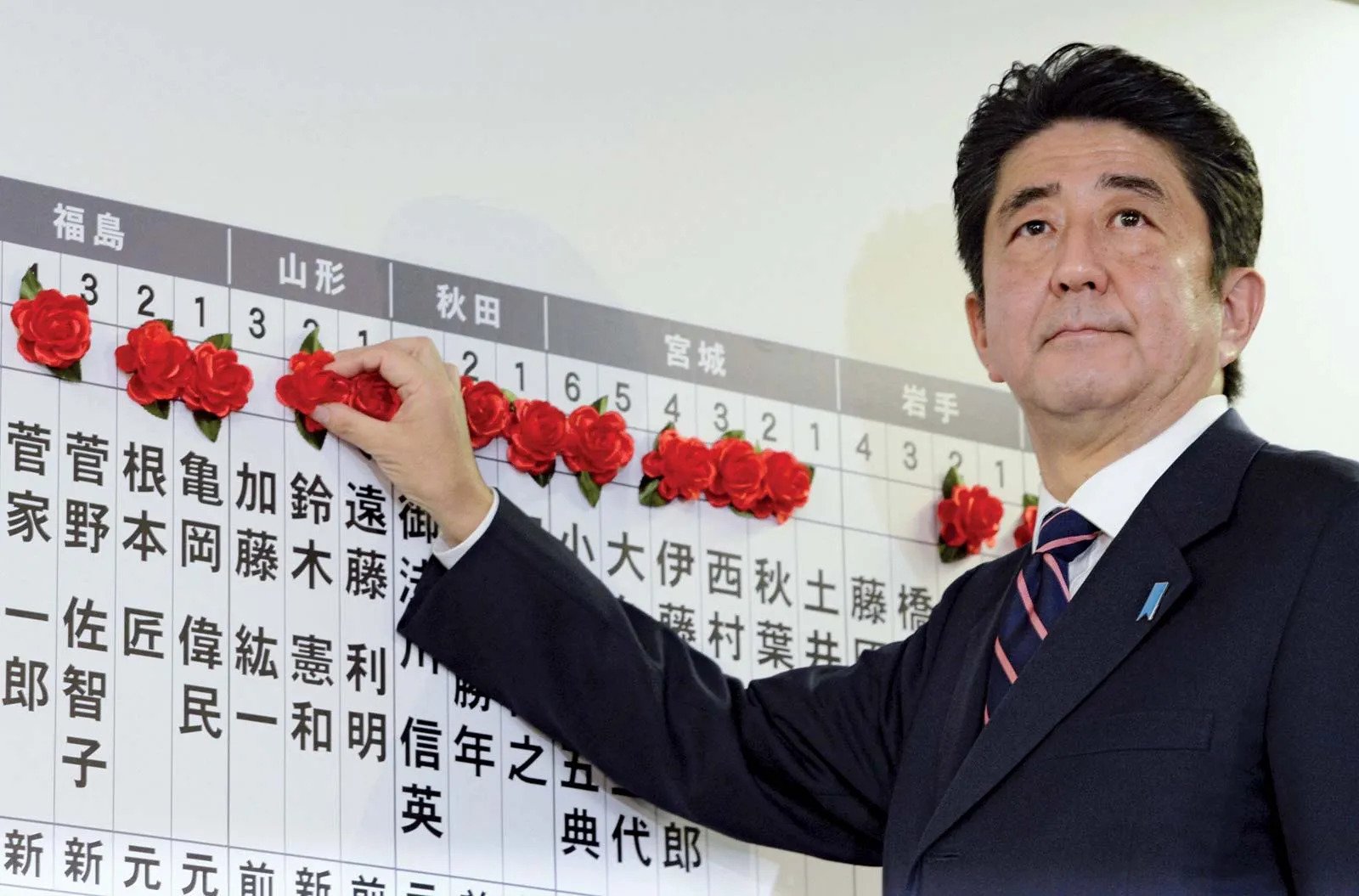
Source: Britannica Encyclopedia
After a six-year period of political instability which saw Japan changing PMs six times, Mr Abe’s return to the post in 2012 following a landslide victory by the LDP was apparently thought to be the point of change.
Shortly after assuming office, his own brand of reforms was credited for reviving Japan’s economy, which had stagnated after a lengthy postwar boom.
It was thus no surprise, perhaps, that the LDP went on to win the 2014 and 2017 elections too, establishing their influence.
5. Shinzo Abe introduced ‘Abenomics’ in 2012
This economic revival, albeit short-lived, was the product of Mr Abe’s drastic approach to reform the Japanese economy, called “Abenomics“.
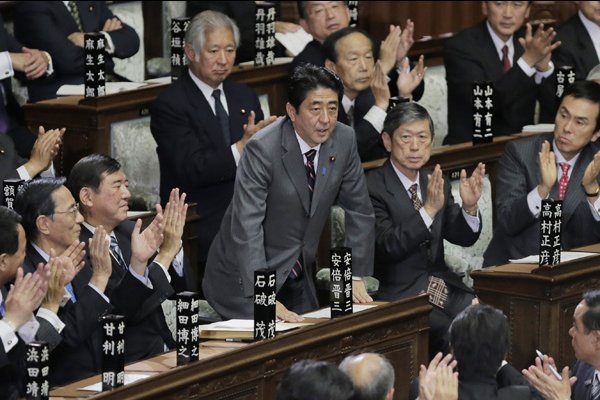
Source: GR Japan
While we won’t go into the nitty-gritty details of its mechanisms, it mainly involved vast government spending, massive monetary easing, and cutting red tape.
Progress did come as a result of “Abenomics” but the Japanese economy’s bigger structural problems remained.
Deflation found itself to be quite the stubborn adversary and the economy went into recession even before the pandemic.
6. Resigned from office in 2020 due to health issues
In 2020, Mr Abe resigned from his position as PM, with a year left in his term of office.
As the world was facing the unprecedented effects of Covid-19, Mr Abe was battling a recurrence of the ulcerative colitis that forced him to cut his first term in office short.
In a speech announcing his resignation, Mr Abe explained that he had arrived at a point where he could “no longer fulfil the mandate from the people with confidence”.
The sudden announcement came as a shock for many in Japan as government officials had already dismissed concerns about the then-PM’s health only days prior.
Shinzo Abe’s legacy will be remembered by his people for years to come
For all of Shinzo Abe’s contributions to his country, we’re sure that the Japanese people will remember his legacy for years to come.
MS News sends our condolences to his loved ones and everyone in Japan in the wake of his untimely death.
Have news you must share? Get in touch with us via email at news@mustsharenews.com.
Featured image adapted from Paul Kagame on Flickr.
